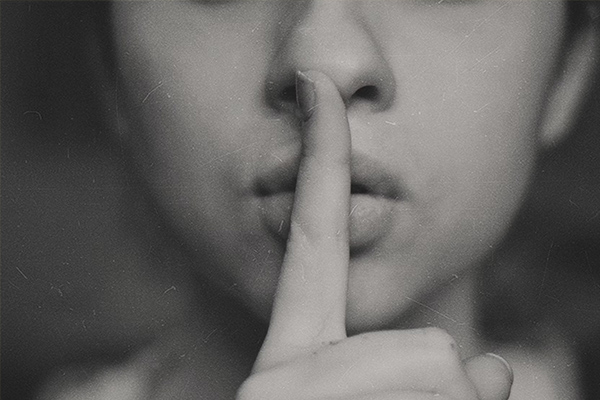

The intricacies of dishonesty have intrigued humans for eons, yet until recent times, empirical investigation into the frequency of lying remained scarce. A 2004 survey conducted by Reader's Digest unveiled that a staggering 96% of individuals admit to lying at least occasionally.
RELATED: 3 BEHAVIORS THAT CAN RUIN A RELATIONSHIP
A comprehensive national study from 2009 engaged 1,000 U.S. adults, revealing that 60% of participants professed to be completely truthful. However, the findings illuminated that approximately half of all falsehoods were perpetuated by a mere 5% of the subjects. This investigation hints at a probability of a small group of ardent deceivers.
It's a fact that most individuals likely fabricate falsehoods occasionally. Some of these untruths constitute what we label "white lies," aimed at shielding another's emotions ("No, that shirt doesn't make you appear overweight!"). In graver instances, these lies manifest as more profound transgressions (like falsifying credentials) or even as dark as concealing criminal activities.
5 Signs of Lies
Certain behaviors may act as red flags, offering insights into potential lies:
- Ambiguous responses; scarcity of details
- Repetition of queries before responding
- Communication in fragmented sentences
- Failure to provide specifics when challenged about a narrative
- Grooming gestures like hair manipulation or finger-to-lip contact
When suspicions arise regarding someone's truthfulness, these indicators prove invaluable in distinguishing reality from deception:
Body Language
Deception detection often fixates on body language "tells" – subtle physiological and behavioral cues that hint at dishonesty. Examples include shrugging, inscrutability, a languid posture, and grooming behaviors like hair fiddling or finger-to-lip contact, all of which can divulge a person's mendacity.
However, while such physical cues occasionally disclose deceit, research underscores that several conventional "suspect" behaviors don't consistently correlate with lying. Howard Ehrlichman, a psychologist delving into eye movements since the 1970s, has ascertained that these movements aren't synonymous with deception. In fact, he argues that shifting eyes signify cognitive activity, specifically accessing long-term memory.
In a similar vein, studies reveal that although individual cues are pertinent indicators of falsehood, some of the commonly linked signals to lying (like eye movements) exhibit poor predictive accuracy.
The key takeaway is to consider all potential signs, bearing in mind that body language, though helpful, might not tell the whole story.
A meta-analysis underlines that, while people frequently rely on valid cues to detect lies, the issue lies with the reliability of these cues as deception indicators.
Speech Patterns
Uncertainty in speech can betray unease and a subconscious acknowledgment of guilt. A person sounding unsure or insecure is more likely to be perceived as deceitful.
Language Patterns
A deceptive account is often marked by omissions of crucial details. Concealing minor aspects of a tale, which they avoid relating, safeguards them against scrutiny over that element. A study exploring cognitive load suggests that reversing storytelling order brings forth more apparent verbal and nonverbal cues.
Since lying is mentally taxing, liars expend substantial mental energy monitoring their actions and evaluating responses to maintain credibility.
Increasing cognitive complexity could amplify behavioral cues, as demonstrated by another study where reversing or maintaining chronological order during interviews impacted deception cues.
Instinctual Insights
Instinctive reactions deserve attention. A study entailing 72 participants exposed to videos of mock crime suspect interviews revealed interviewers couldn't consistently spot lies, accurately identifying liars only 43% of the time and truth-tellers 48% of the time.
Implicit behavioral reaction time tests indicated that participants unconsciously associated words like "dishonest" and "deceitful" with actual liars. Conversely, words like "valid" and "honest" were implicitly associated with truth-tellers.
This suggests that our intuition might harbor an unconscious perception of deception.
Why Detecting Lies is a Complex Task
Conscious responses might hinder our automatic associations. Relying solely on instinct, we tend to focus on stereotypical lying behaviors like fidgeting and averted gazes.5 However, overly emphasizing these unreliable cues complicates distinguishing truth from deceit.
Ironically, people struggle to identify lies. A laboratory study revealed that participants correctly detected lying only 54% of the time, not significantly better than the 50% chance factor.
Researchers from UCLA, after examining deception through 60 studies, suggest that although detecting lies isn't straightforward, substantial training can improve lie detection skills. R. Edward Geiselman, lead researcher, asserts that without proper training, perceived detection abilities are unrelated to actual skill:
"Quick, inadequate training sessions lead people to over-analyze and to do worse than if they go with their gut reactions."
The reality is, there's no universal signal for lies. The cues, behaviors, and indicators linked to deception merely offer glimpses into the veracity of a person's words.
When assessing the credibility of a narrative, consider the subtle behaviors rather than clichéd "lying signs." Apply pressure if necessary, making the lie more mentally demanding by asking for a reversed story. And remember, your intuition might be your best guide—trust those gut feelings.
How to Tell if Your Partner is Lying
Trust is the most important thing in a relationship, and iFindCheaters is here to help you find any lies that may be causing trouble.
With our private online service, you can find out the truth without invading privacy or putting yourself in danger, making it the best way to catch a cheater.
Wondering how to find out if someone has dating profiles? Our advanced algorithms search over 55+ popular dating and alternative lifestyle sites, leaving no stone unturned. Sign up today and claim your free dating sites search.













